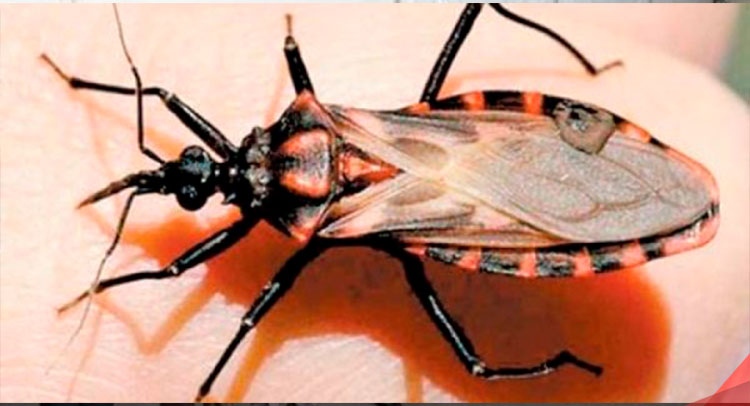According to Yucatan’s official epidemiological bulletin, In the month of February, 35 new cases of Chagas disease were reported around the state.
The insidious parasitic disease infects thousands in 21 Latin American countries and is becoming more common in Yucatan.
The state Minister of Health, Jorge Mendoza Mézquita, said that there are many communities that are providing a habitat for the insect.
Two years ago, Celia Be, originally from the municipality of Ticul, went to the doctor to take care of a cough that would not go away. After several studies and an x-ray, an abnormal heart growth was detected; it was Chagas disease, a silent disease caused by the bite of the “Pic”, which has no symptoms and can cause death.
It is said that the “besucona”, “chinche picuda” or the triatomine, as it is known, feeds on the blood of mammals and, particularly, likes to bite around the lips of people as they sleep.
When the bugs that are infected with the trypanosoma cruzi parasite defecate and the matter infects the bite, Chagas disease is generated.
“Yes, it is a health problem due to vector transmission and the important thing is that it can be detected in time to prevent damage to the heart, which ranges from loss of pumping strength, heart failure, to death,” said Dr. Hilda Peralta Rosado.
This disease has two stages; the acute, where there is the possibility of curing the patient, and the chronic, where it is no longer curable, and is only kept under control with medication.
Therefore, the Ministry of Health of Yucatan (SSY) has been given the task of working to avoid more cases through the spread of the disease due to the growth of the city.
“There are many communities that are already in the habitat of the bug, and we have to know this disease well to defend ourselves,” said the head of the agency, Jorge Mendoza Mézquita.
A problem faced by those who suffer from Chagas is treatment, since it is not within the basic framework of Seguro Popular and it is expensive. Agreements have been promoted with the Federal Government to be able to grant medicines.
The life span of a person will depend a lot on the progress of the disease, which is very difficult to know since it is asymptomatic.
Manuel Jesus Castro, also from Ticul, was detected with this condition a year ago when he went to donate blood and until now leads a normal life.
“Until now I have a normal life, it has not affected me, but over time they say yes. That’s why I came to see if they can help me,” he said.
While there are no recorded deaths, it does not mean they do not occur. The same dynamics of the disease causes people to follow their lives in a normal way until they have heart failure.
Text: Punto Medio
Photo: Courtesy






